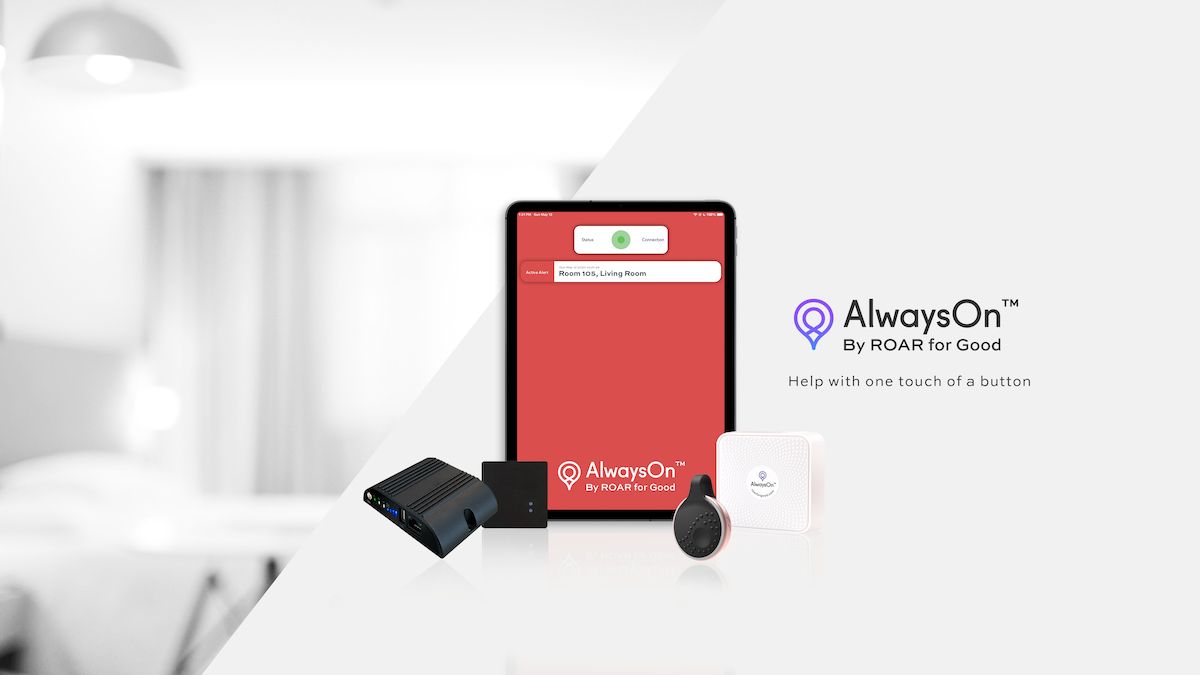2020 was a crushing year for the hospitality industry. But ROAR for Good cofounder Yasmine Mustafa is keeping her eyes on encouraging recovery numbers as the company places its personal safety device technology in more hotels across the United States.
The company just closed a round of growth capital and is planning to add to its team this year, it announced Thursday. The round — Mustafa told Technical.ly she’ll be keeping the size private for now — closes as many states face impending deadlines to reach safety compliance standards.
Often called “panic button laws,” many regions are making it mandatory for hotels to provide their staff with personal safety devices. It’s exactly what Mustafa had in mind when she pivoted ROAR’s original product, the Athena, to this B2B business model a few years ago.
Now, the company is ramping up production, marketing and sales for its AlwaysOn platform, which allows hospitality workers to alert management of potentially dangerous situations. It’s an important direction of growth for Mustafa and cofounders Taun Chapman, Rich Nelson, and Mahmoud Odeh. Mustafa emphasized that an overwhelming majority of hotel staff are women, and the b2b model aligns with the mission of the company at its inception — allowing women to be proactive about their safety.
“Now, instead of women themselves having to take that responsibility, that initiative, there’s a shift,” she said. “They’re shifting the burden from the housekeepers themselves to the property owner and employer.”

This move has given the company the ability to exceed their social impact, Mustafa added. Last month, ROAR announced it had launched the product in several properties in the local Gulph Creek Hotels management company, including the Fairfield Inn & Suites in Berwyn, the Homewood Suites in Eatontown, New Jersey, and Home2 Suites by Hilton in Downingtown.
AlwaysOn is now in use in four local hotels — including The Warwick in Center City — and although Mustafa didn’t share how many hotels across the U.S. ROAR has contracted with, she said it’s being used in more than 3,000 rooms. A soon-to-be-closed deal will bring that number to 11,000 rooms.
Cost is exceedingly important in a compliance-driven industry, as customers will likely seek out the cheapest option to fulfill regulations. But the business model shows that once the hardware is in the hotels, most sign three- to five-year contracts and recurring revenue begins, Mustafa said.
Mustafa said she sees the round as an opportunity to accelerate growth as much as possible and grow the team in product development, engineering, customer success and operations.
Participating investors in this round include Social Venture Circle, Broad Street Angels, Untours Foundation, Marstar Investments partner Steven Finn and a handful of angel investors, including tech entrepreneur Jake Stein.
“Investing in ROAR For Good again was a no brainer,” Finn said in a statement. “For us, the opportunity is tremendous and fragmented, they’ve built out scalable technology, and the success of the company means the safety and security of a constantly at-risk demographic.”







